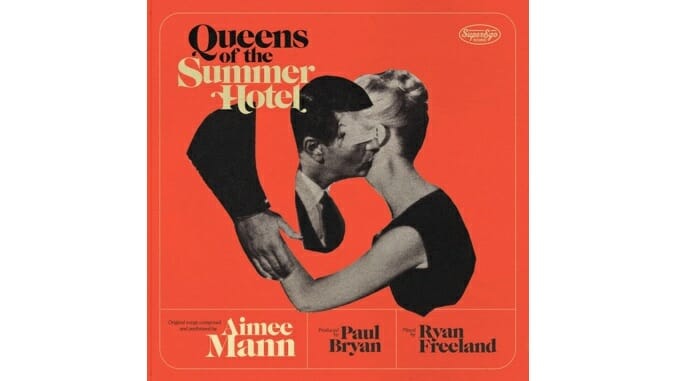Aimee Mann Creates Compelling Character Sketches on Queens of the Summer Hotel
Singer’s 10th album emerged from her work on songs for a stage musical

Any pop musician who’s tried writing a stage musical will tell you the process tends to be prolonged. Turns out a global health crisis doesn’t make things go any faster. Aimee Mann had been writing songs over the past few years for a stage adaptation of Girl, Interrupted, a memoir by Susanna Kaysen about her stay in a psychiatric hospital in the late ’60s, when the pandemic put the project on hold. Rather than shelve what she had been working on, Mann compiled the songs into Queens of the Summer Hotel, her 10th studio album.
She’s well-suited to the subject matter. Mann has long been intrigued by trying to unravel the knots of impulses and seeming contradictions that make up our psyches. She has spent a big chunk of her solo career exploring themes of mental illness—the phrase was even the title of her Grammy-winning 2017 album—and she’s been frank about her own mental health struggles. “It’s both sort of fascinating and gratifying to realize that people’s behavior has an internal logic, like classifying it as symptoms more than personality traits,” she once said in an interview.
There’s plenty to work with here: Mann examines mental health from different angles, on tracks by turns mordant, biting, distressing and deeply sad. Queens of the Summer Hotel is not an upbeat album, to say the least. Yet the songs are tightly constructed, full of smart wordplay, vivid imagery and characters who are largely sympathetic. On opener “You Fall,” over a brisk piano figure augmented with strings, Mann narrates while one of those characters watches herself having a breakdown, as if observing from the outside, her façade crumbling with each sip of her drink. Later, on “At the Frick Museum,” Mann sings in the voice of someone who is remembering a college trip to New York that included seeing Vermeer’s painting Girl Interrupted at Her Music, which yielded the title of Kaysen’s memoir. The jaunty “Give Me Fifteen” finds a cocky doctor boasting of his ability to diagnose patients in just a quarter-hour, mostly by not really trying to understand their situations.
-

-

-

-

-

-

-

-

-

-

-

-

-

-

-

-

-

-

-

-

-

-

-

-

-

-

-

-

-

-

-

-

-

-

-

-

-

-

-

-








































